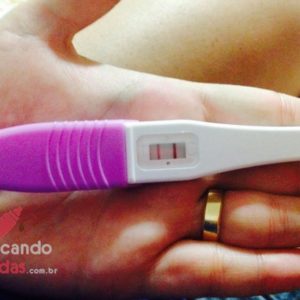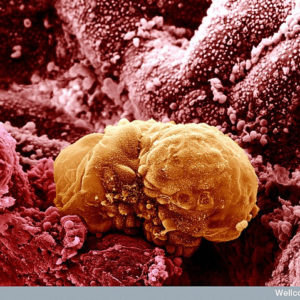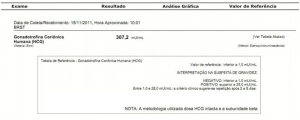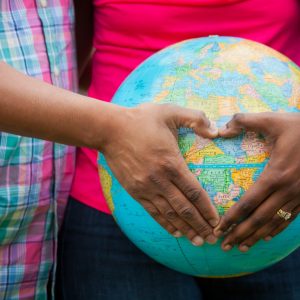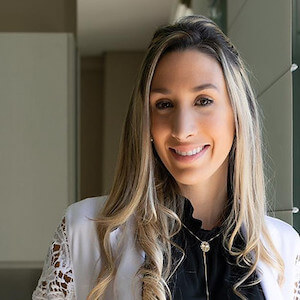1-3 Weeks of Pregnancy
Your 1st to 3rd week has begun
- Development the development process of the embryonic structures has begun.
- Schedule The missed period can already be noticed and pregnancy is confirmed through a pregnancy test or a beta HCG test.
- Fetal development is rapid and major changes take place weekly.
- Pregnancy lasts about 40 weeks and may go up to 41 complete weeks.
- The first week is usually counted from the date of your last period. This is the most reliable way to predict your due date (EDD).
- During the 2nd week, fertilization finally occurs and the nuclei fuse, creating the combination of the parents’ DNA.
- During the 3rd week, the zygote is formed and reaches the uterus, attaching to the endometrium where implantation happens.
- At this stage, implantation bleeding can occur, which is a light pink discharge, but it may or may not happen.
Let’s follow along in this series the stages of fetal development of that little being who quickly becomes so loved. Inside us, as women, our baby begins to grow, and along with that come the first emotions, the first experiences, the discovery of little feet and hands. It’s a world completely apart from our own, and while we can see and follow some things, it still leaves many questions for future mothers. Fetal development is one of the biggest curiosities among pregnant women.
Having gone through this amazing phase, I will share here everything I’ve learned from my own experience and from everything I’ve researched and studied. Let’s begin! To better understand fetal development1, we need to consider that a pregnancy lasts about 40 weeks or 280 days, and it may go up to the 41st week easily. A full-term delivery can happen between 37 and 41 weeks, without major issues for mother or baby.
Questions are very common, especially during the first weeks. This is the stage when we are still discovering the pregnancy and the signs may be a bit confusing. It’s also the stage when it’s hardest to directly see and feel what’s going on, so it’s normal to have many questions and lots of curiosity about the baby to come. But don’t worry — we’ll explain everything that happens during these weeks in detail!
Fetal Development: Weeks 1 to 3
1st week of pregnancy:
Week 1 of pregnancy starts on the day your period shows up. Usually, doctors count your pregnancy from this day to get a more accurate estimate for your expected due date (EDD). From there, your body prepares for the second week, which is likely when fertilization will occur. If you have regular cycles, you may be more likely to find out about your pregnancy ahead of time. If not, now is a good time to get to know your body and the signals it gives you. Hormone levels are dropping during this initial phase, but soon they will rise again as your cycle continues.
2nd week of pregnancy:
Between the 12th and 18th days of your cycle, once the egg has matured enough inside your ovaries, ovulation occurs. The egg, now grown and mature, is released once the follicle breaks, sending it into the fallopian tube where it waits for sperm. However, the egg’s lifespan is short, about 24 hours in the tube, waiting to be fertilized.
And don’t think the sperm’s journey to the egg is easy. They go through a real struggle to reach their target. Only the strongest and healthiest survive. When they arrive in the tube (or tubes) where the egg is waiting, the few remaining try to penetrate it, but only one does. Right after a sperm enters the egg, the egg’s surface changes to prevent more sperm from entering. Now the nuclei fuse, creating a unique mix of mom and dad’s DNA, forming a new life! That’s the start of the 2nd week of pregnancy!

3rd week of pregnancy:
After fertilization, the zygote is formed by the egg and sperm through the combination of the parents’ DNA. In the 3rd week of pregnancy, the two cells that have met start to divide rapidly as they travel down the path towards the uterus. Finally, 7 to 17 days after fertilization, the new being arrives in the uterus and looks for a soft, thick spot on the endometrium to implant. This is where implantation2 begins!
This process of implantation can take some time and it is only after this step that HCG becomes detectable in the body. After implantation, the zygote splits into two parts: one becomes the structures the baby needs to develop, like the amniotic sac, and the other part becomes the baby. The 3rd week of pregnancy is decisive for the fetus.
How Mom Is Feeling…
This so-called implantation may result in a small bleeding or even a pinkish discharge for some women, but only a small percentage experience this sign3. For me, it was very discreet and I got it mixed up with the start of a period. So if you have minimal, non-flowing bleeding, it’s a good idea to take a test as soon as possible. This situation tends to cause doubt among women: “My period only lasted two days, could I be pregnant?” So, taking a test is the best option — and you’ll find high-sensitivity pregnancy tests from Famivita that detect HCG up to 3 days before your missed period here.
Even though there may not be obvious symptoms, it’s common for some women to have cramps during this phase. Once the embryo is securely implanted, pregnancy truly begins and half of the cells will form the baby, while the other half will form the placenta and the amniotic sac, which will house, nourish, and provide oxygen and nutrients for the embryo(s) throughout the pregnancy.
Readers’ Questions:
What is the uterus like in the first weeks of pregnancy?
Even during the first weeks, the uterus is swollen, sensitive, and soft, and as the transformations begin, cramps may appear during this period. It’s a very common symptom in the first trimester when the body is undergoing intense changes.
How does a woman’s skin change in the first weeks of pregnancy?
Although the famous pregnancy glow really is true for many women, not everyone is so lucky. With the increased blood volume circulating, women tend to look rosier during this stage, but this blood flow can also make the skin more oily. As a result, many women suffer from acne and skin spots during pregnancy and need to pay extra attention to hydration and sun protection.
How should you eat in the first weeks of pregnancy?
A healthy diet is important at any phase of life, but during pregnancy — especially in the first weeks — it takes on even greater responsibility. It’s in these first weeks that all the nutrients and vitamins you eat will ensure the proper development of the placenta, which is responsible for the nutrition and oxygenation of the fetus throughout pregnancy. Following a diet rich in vitamins and minerals, such as folic acid, iron, vitamin B6, and omega 3 is essential. That’s why it’s very important to talk to your doctor about a good multivitamin. Learn more about FamiGesta here.
Is it normal not to have many symptoms at this stage?
Every body and every pregnancy is different. Many changes are happening internally at this stage, and it’s normal to notice a few symptoms. However, some women feel almost nothing or only very subtle signs. That is normal, and there’s no reason to worry.
See Also: First Days of Pregnancy – What Are the Early Symptoms?



From Dr. Mariana Grecco and Patricia Amorim for Famivita




